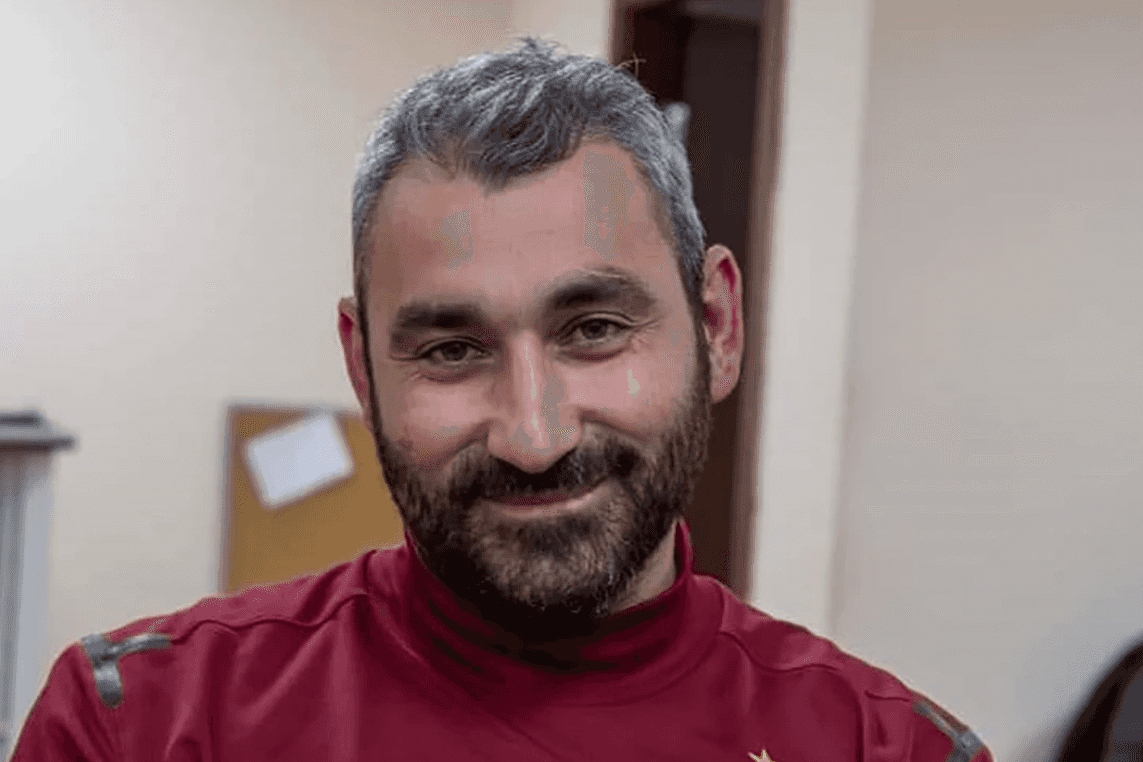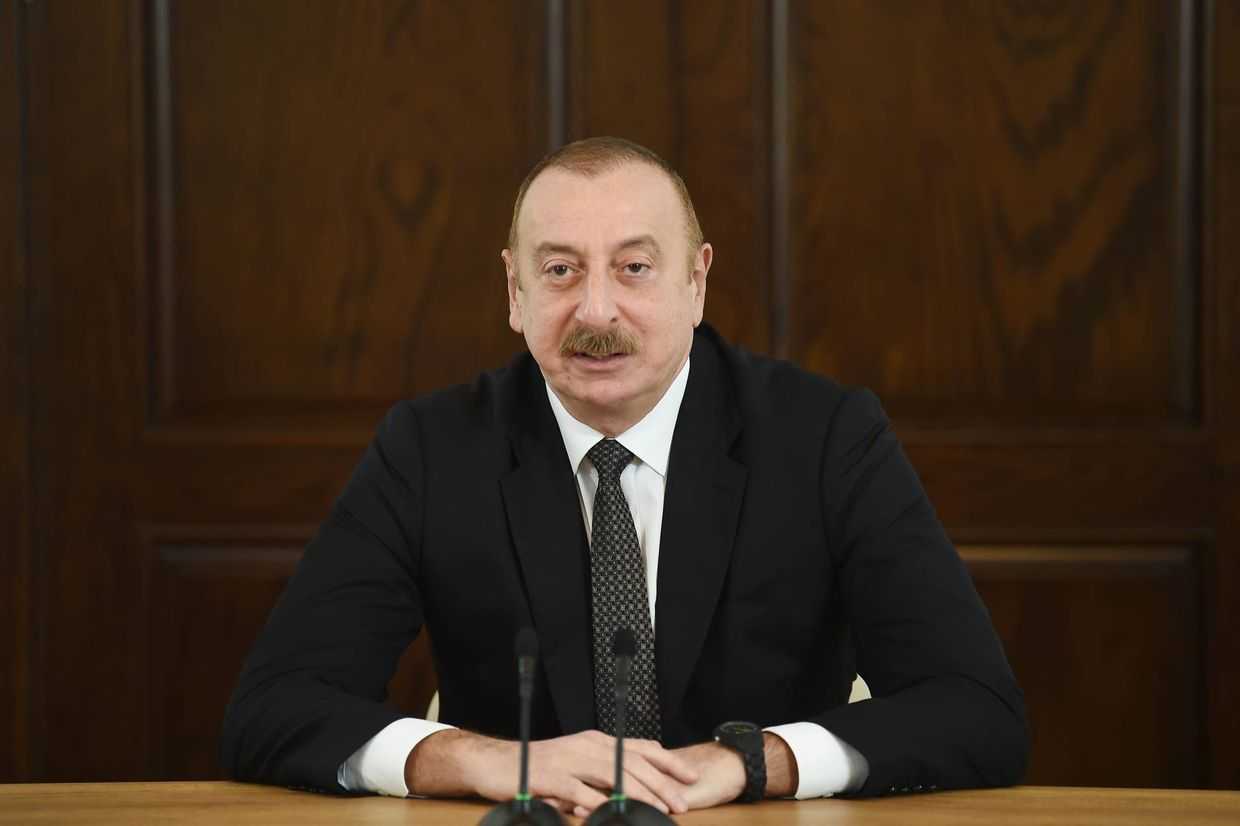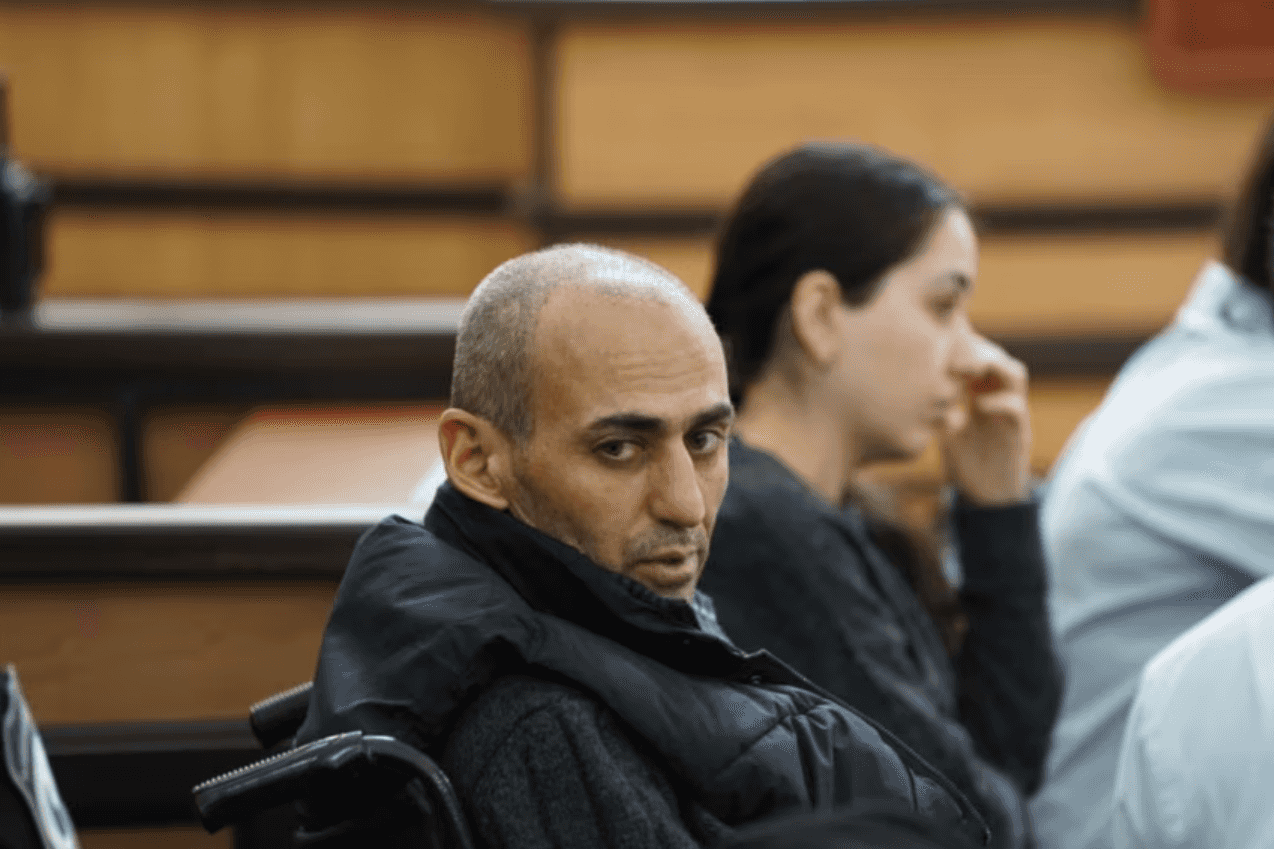European Court of Human Rights ‘indefinitely suspends’ Georgian Supreme Court ruling on Rustavi 2

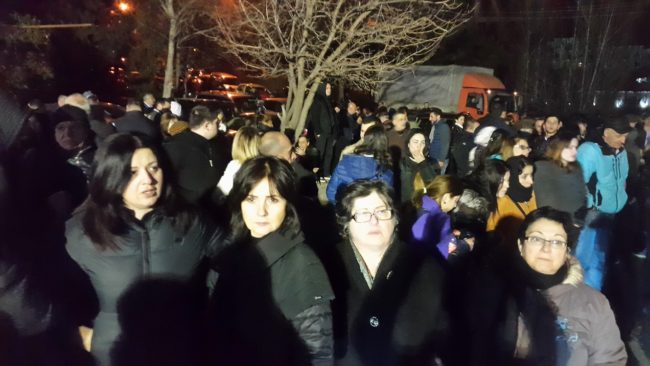
 The European Court of Human Rights (ECHR) on 7 March indefinitely suspended Georgia’s Supreme Court ruling on the ownership of Georgia’s most watched TV Channel, Rustavi 2. The suspension means that the channel will remain in the hands of its current owners until the ECHR considers the case.
The European Court of Human Rights (ECHR) on 7 March indefinitely suspended Georgia’s Supreme Court ruling on the ownership of Georgia’s most watched TV Channel, Rustavi 2. The suspension means that the channel will remain in the hands of its current owners until the ECHR considers the case.
The latest decision comes after lawyers for Rustavi 2 successfully petitioned on 3 March for the Supreme Court ruling to be suspended, which was initially granted temporarily until March 8.
The Supreme Court decided to hand Rustavi 2 to businessman Kibar Khalvashi, who owned the channel in 2004–2006 and who is viewed by supporters and employees of the channel as a pawn of the current government. Even prior to the conclusion of the case, protesters rallied in support for the channels current owners, claiming that the government was using Khalvashi in an attempt to mute a major opposition-leaning channel.
According to lawyers for Rustavi 2, the ECHR’s order is unprecedented, in its history, the ECHR has never previously reacted so rapidly except in cases of torture or someone’s extradition.
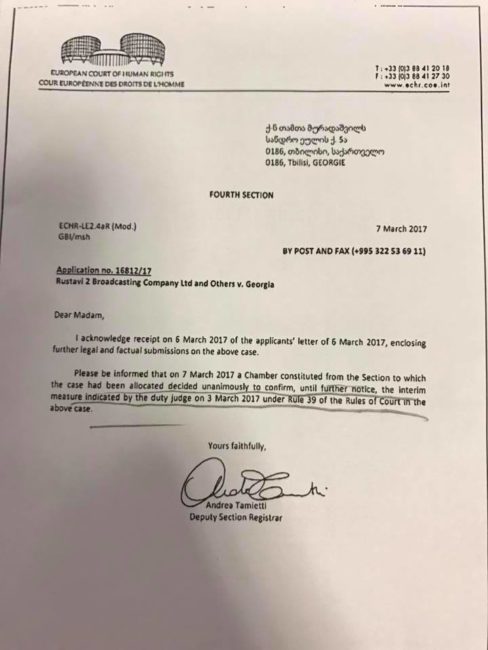
Supporters of Rustavi 2, as well as opposition parties and non-governmental organisations expressed support for the TV station, with activists spending the night after the Supreme Court’s decision outside the company’s offices.
In response to the protests, Prime Minister Giorgi Kvirikashvili announced on 6 March the creation of a Media Ombudsman.
‘Today, I am publicly inviting for cooperation from European media experts and specialists who have proved in deed their professionalism. The Office of Media Ombudsman will continuously monitor the country’s media environment and development, including the processes involving Rustavi 2, the Public Broadcaster, and the media environment as a whole. We are open to cooperation’, he said.
President Giorgi Margvelashvili said that Rustavi 2 is not just a business but an important part of social-political life in Georgia, and that Rustavi 2 offers the opportunity to express different and critical opinions. Suppressing Rustavi 2 will harm Georgia’s democracy and its image, the president said.

